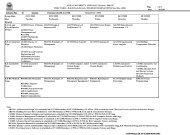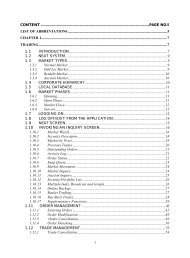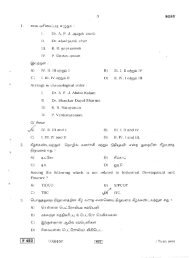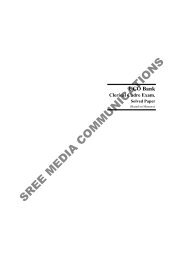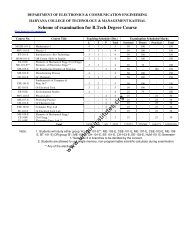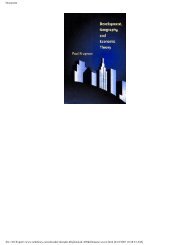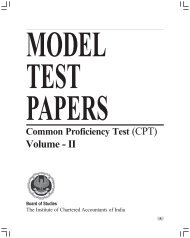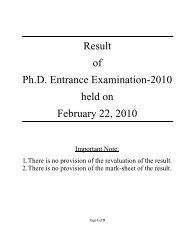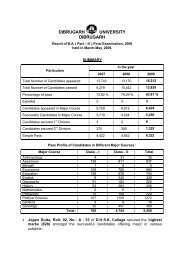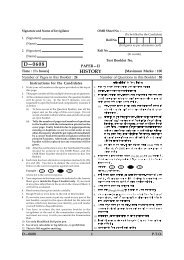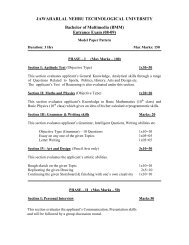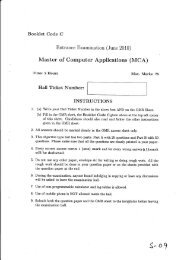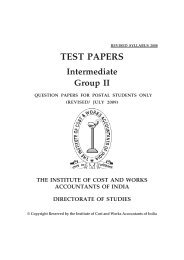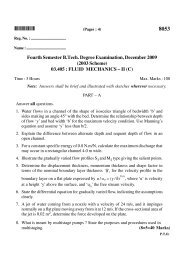UNIT – I Lesson 1 HRM – AN OVERVIEW Lesson Outline Nature of ...
UNIT – I Lesson 1 HRM – AN OVERVIEW Lesson Outline Nature of ...
UNIT – I Lesson 1 HRM – AN OVERVIEW Lesson Outline Nature of ...
Create successful ePaper yourself
Turn your PDF publications into a flip-book with our unique Google optimized e-Paper software.
another. Culture may be stated as sharing some core values or beliefs by the members <strong>of</strong><br />
the organization.<br />
The culture <strong>of</strong> an organization is like the preserved culture <strong>of</strong> a family, the tradition<br />
<strong>of</strong> a group or race. Culture identifies the group and the group cherishes it. Some<br />
organizations are highly respected for the culture it has preserved and any deviation may<br />
even be resented by its customers and the general public as well.<br />
<strong>HRM</strong> has the delicate but important role in preserving and nurturing the<br />
organizational culture. Conflict usually surfaces because <strong>of</strong> dualities such as personal goal<br />
as against organizational goal, discipline as against autonomy, right as against duties etc.<br />
Such conflicts have their bearing on HR activities in an organization.<br />
Pr<strong>of</strong>essional Bodies<br />
Pr<strong>of</strong>essional bodies have a role to play in maintaining proper internal environment.<br />
Chartered Accountants, doctors, lawyers etc., have pr<strong>of</strong>essional bodies which regulate and<br />
maintain the dignity <strong>of</strong> their pr<strong>of</strong>ession. Erring members can be punished by the<br />
pr<strong>of</strong>essional body and they down rules and procedures for good conduct and ethics. So lay<br />
also The National Institute <strong>of</strong> Personnel Management advices and regulates <strong>HRM</strong><br />
activities.<br />
External Environment<br />
Economic, political, technological and demographic factors have a bearing on<br />
external environment. These forces have considerable influence on <strong>HRM</strong>.<br />
Economic Factors<br />
Economic forces include growth rate and strategy, industrial production, national<br />
and per capita income, money and capital markets, competitions, industrial labour and<br />
globalization.<br />
A sustained growth and higher GDP gives lot <strong>of</strong> scope for <strong>HRM</strong> in the search <strong>of</strong><br />
talents and innovations. Higher the industrial production, it unleashes its impact in various<br />
sectors giving lot <strong>of</strong> scope for <strong>HRM</strong> activities. Where money and capital are vibrant and is<br />
in the increasing tempo, it may lead to higher investment and activities leading to greater<br />
demand for human resources. Globalization has opened new vistas where competitive<br />
edge and highest quality <strong>of</strong> products and services are needed. This imminent need gives lot<br />
<strong>of</strong> scope for <strong>HRM</strong> activities.<br />
Political Factors



